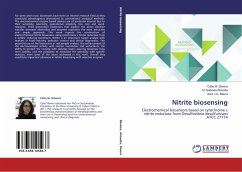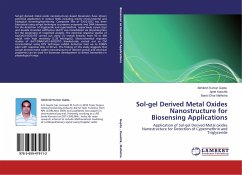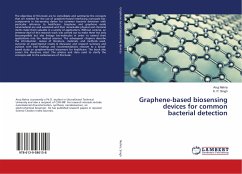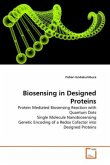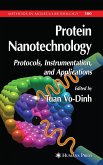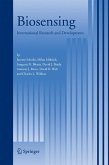For some years now, biosensors have been an intense research field as they constitute advantageous alternatives to conventional analytical methods. The electrochemical enzyme based devices are of particular interest due to their sensitivity, selectivity, operational simplicity, low cost and quick response. Third generation biosensors that explore the direct electron transfer between electrodes and enzymes represent the most attractive and simple approach. This work reports the construction of electrochemical nitrite biosensors using cytochrome c nitrite reductase from a sulfate reducing bacterium. Nitrite is an important target analyte with markets in food industry, pollution control and clinical diagnostics. The potential use of the biosensors in real sample analysis, the enhancement of the electrocatalytic activity with carbon nanotubes and surfactants, the ability to protect the enzyme with polymer layers assuring biosensor long term stability, and the possibility to modulate the selectivity with specific matrices, were some of the issues addressed in this work. Overall they constitute important advances in nitrite biosensing with selective enzymes.
Bitte wählen Sie Ihr Anliegen aus.
Rechnungen
Retourenschein anfordern
Bestellstatus
Storno

